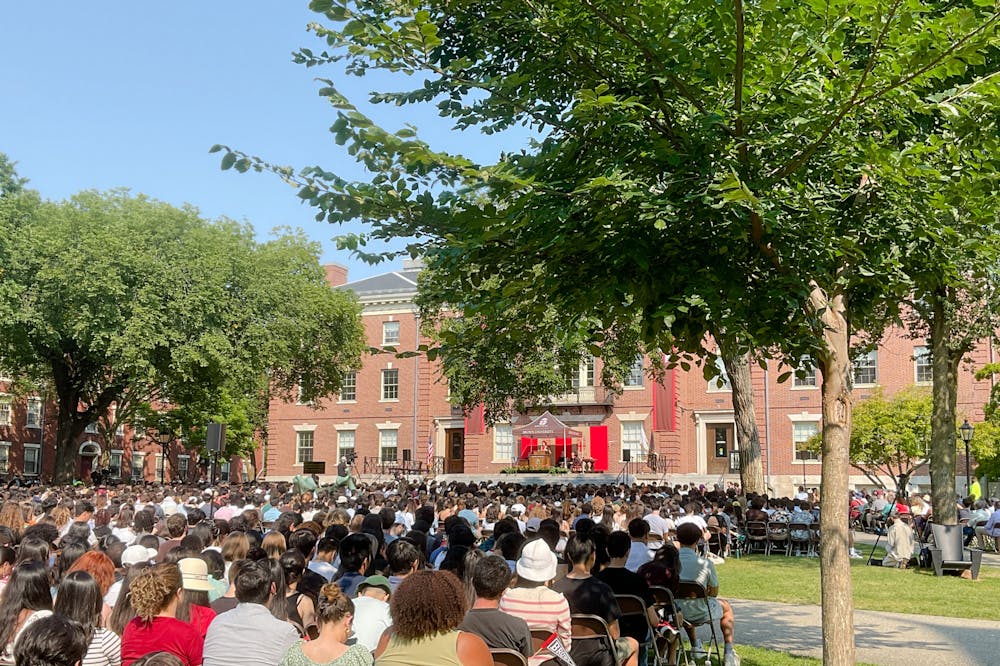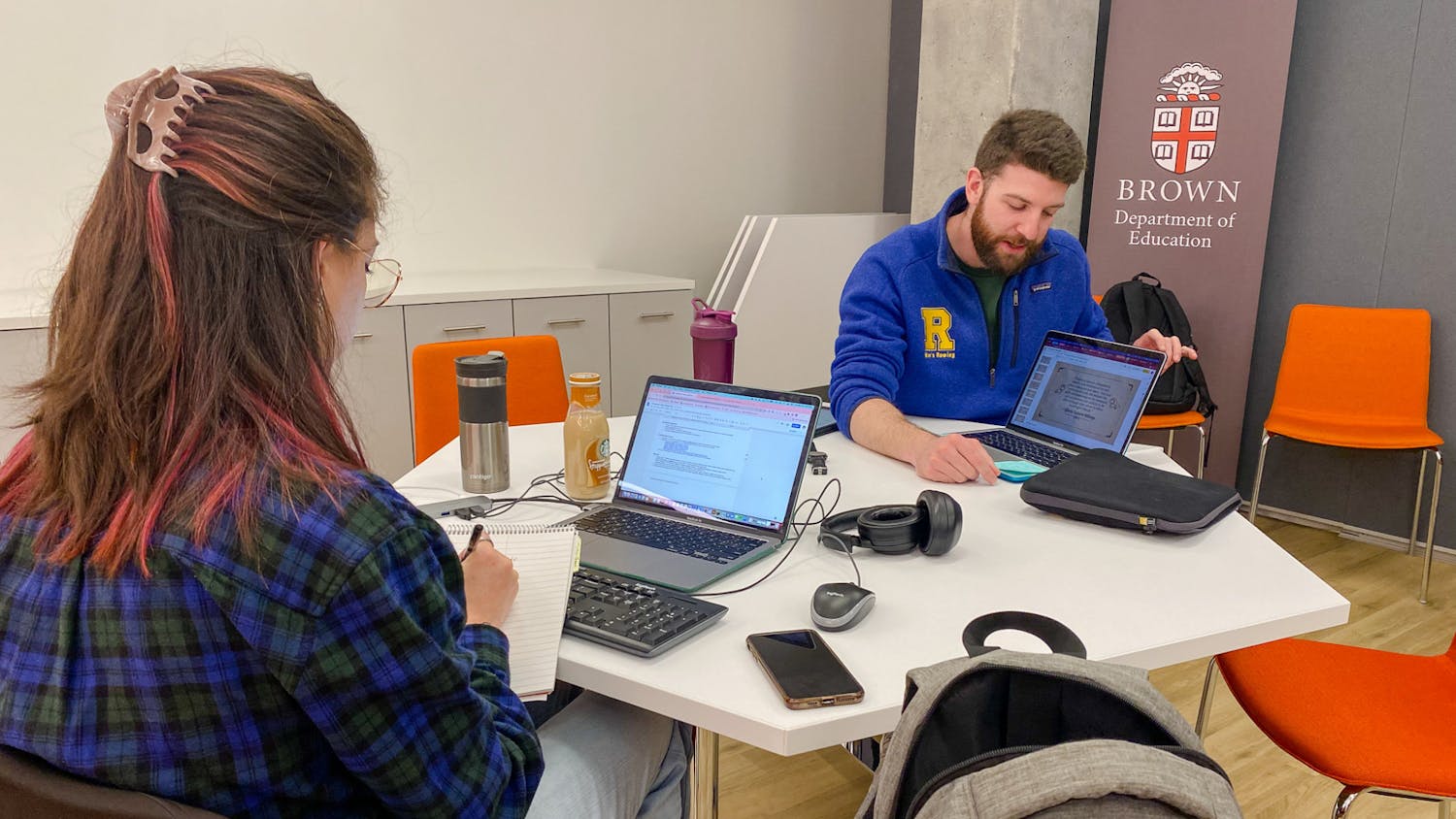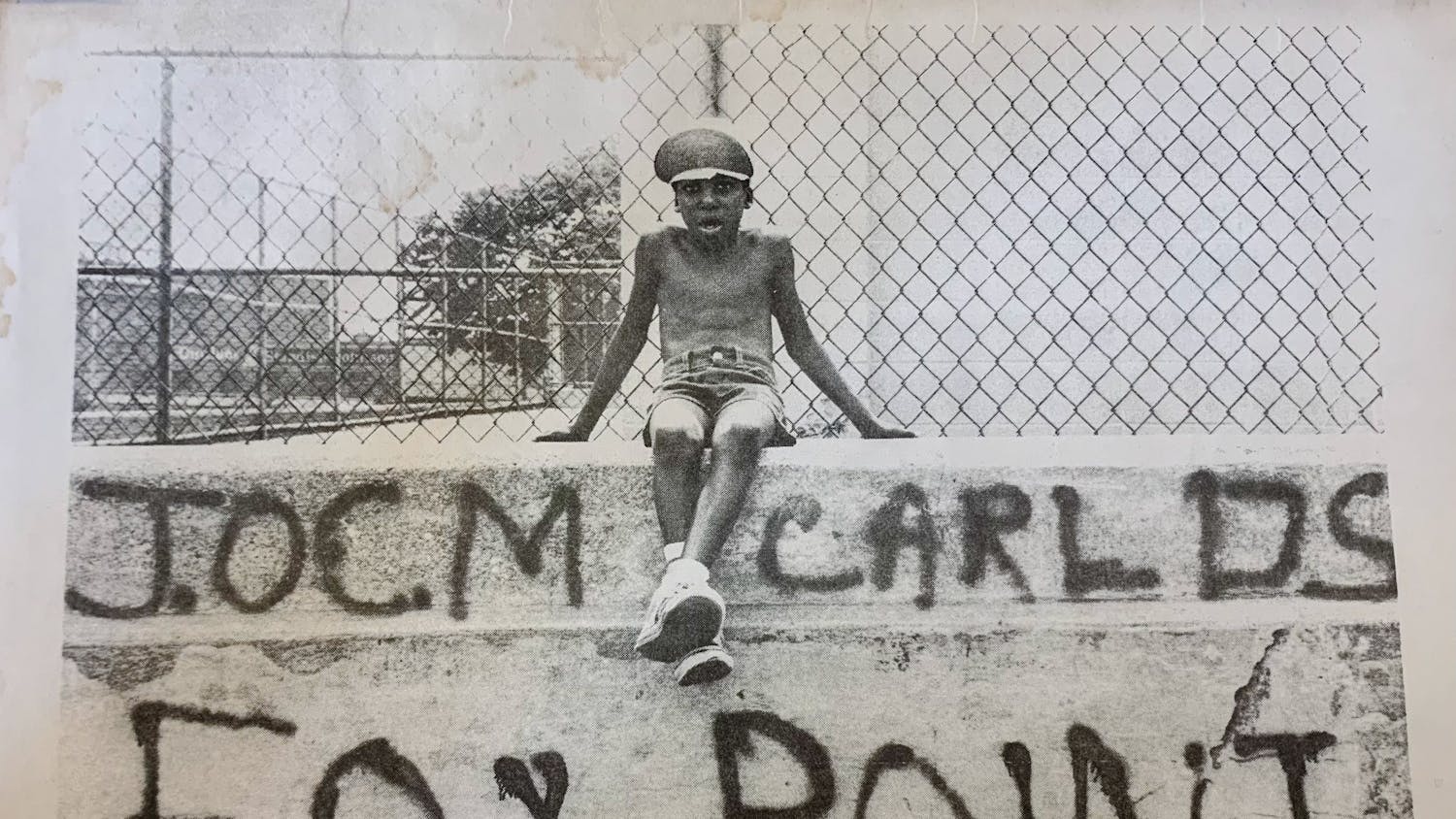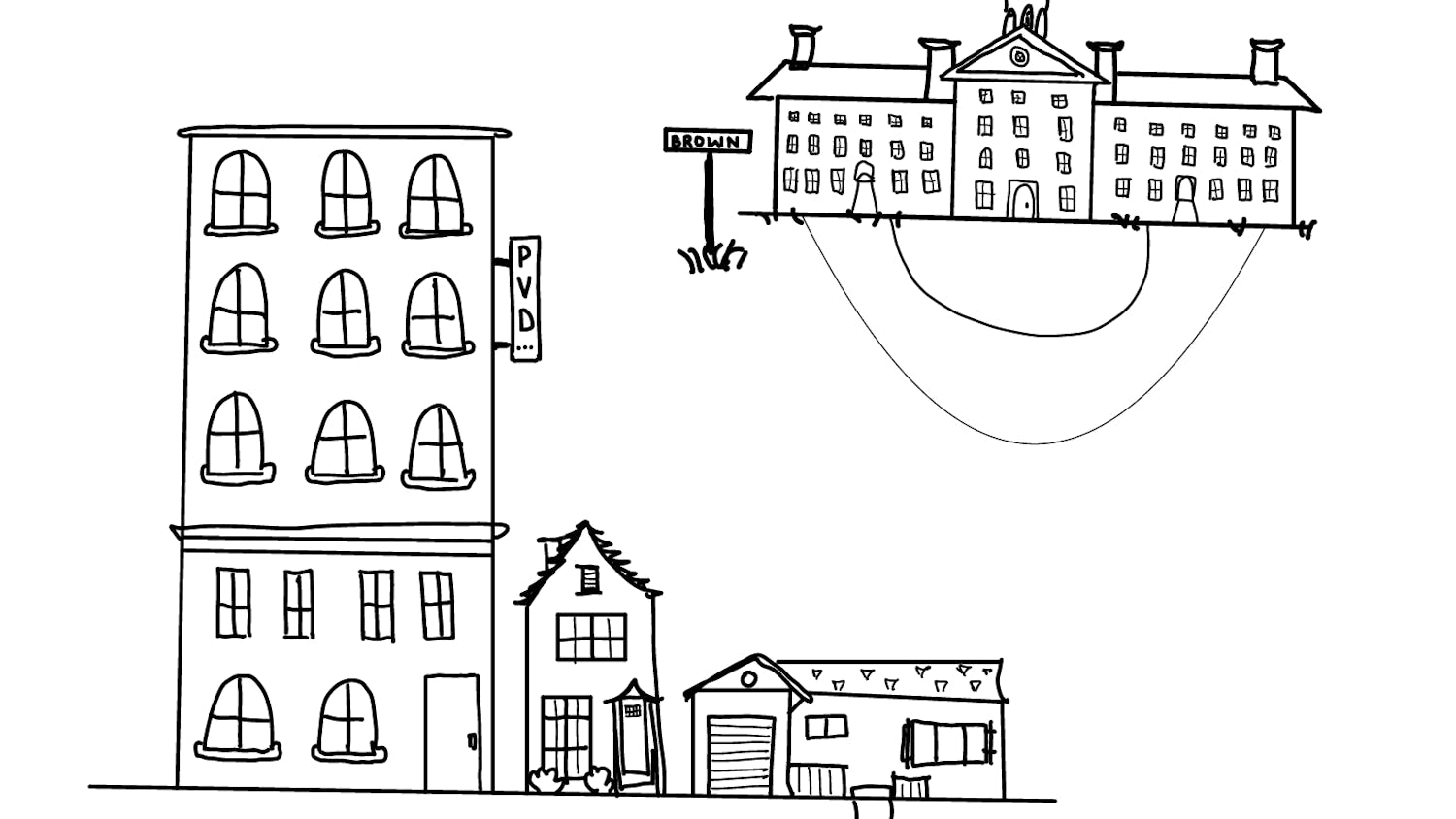Students, faculty and staff gathered on the Main Green to celebrate the start of the 259th academic year and welcome incoming undergraduate, graduate and medical students as part of its Opening Convocation Saturday morning.
The convocation, which was rescheduled from Tuesday due to inclement weather, marked the arrival of 1,211 doctoral students, 144 medical students, 10 resumed undergraduate education students, 104 transfer students and 1,721 undergraduates, announced by President Christina Paxson P’19 during the ceremony.
Paxson offered three pieces of advice to incoming students: to take care of their health, learn from the diversity of the Brown community and participate in research.
“Remember that (attending Brown) is a marathon,” Paxson advised incoming students. “That means get enough sleep, drink enough water, go to the gym, join a club sport (and) eat right.”
She described the student body as “anything but homogeneous,” reminding attendees that “you come from every corner of the world, (and) you represent nearly every socioeconomic group, political persuasion, religious affiliation (and) cultural background.”
Regarding research opportunities, Paxson highlighted the University’s SPRINT awards, which “provided nearly $4 million in funding to support … undergraduate students,” she said.
Paxson then introduced the ceremony’s keynote speaker, Dean of Engineering Tejal A. Desai ’94, who discussed overcoming barriers in her keynote address, “Breaking Boundaries and Building Bridges through Community and Collaboration.”
Desai first discussed her arrival at Brown during the early ’90s, a period marked with “a sense that the world was changing and we couldn't just be passive observers,” she said, citing the Tiananmen Square Massacre, the fall of the Berlin Wall and the launch of the Human Genome Project.
Desai explained that while “growing up in southern California, the daughter of immigrant parents from India, I never thought of studying at a place like Brown.” During her undergraduate years, she combated boundaries to equity on campus as a student activist, advocating for “more diverse faculty (and) students (and) need-blind admissions,” she added.
She noted that the students in attendance will likely “cross and break many boundaries, allowing for a transformative impact to society” in fields such as engineering, public health and public policy.
Some incoming students attending convocation praised Desai for speaking on identity and modern-day issues during her address.
Incoming graduate student Olivia Perez GS’24 said that Desai “spoke greatly and … touched a lot of important points of how she grew as a student here.”
Ashton Higgins ’26 praised the keynote speech for being “very timely given the events of the past few years,” and Ruth Yinka-Banjo ’26 said that parts of the address “really resonated with me … like (when) she said to stay true to yourself.”
But after arriving on campus over a week ago and beginning classes earlier this week, both Higgins and Yinka-Banjo said that convocation didn’t mark a significant change in their student experience.
Being inducted into the class “doesn’t feel that different because I’ve already started attending classes, but … I haven’t seen President Paxson in person before, so that helps make it feel official,” Higgins said.
“It really doesn’t feel any different,” Yinka-Banjo agreed. “I didn’t actually know that (convocation) was that serious.”

Neil Mehta is the editor-in-chief and president of the Brown Daily Herald's 134th editorial board. They study public health and statistics at Brown. Outside the office, you can find Neil baking and playing Tetris.





